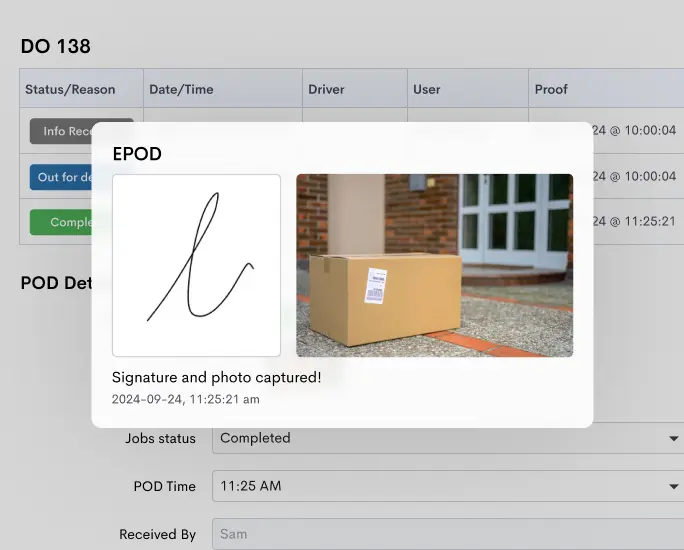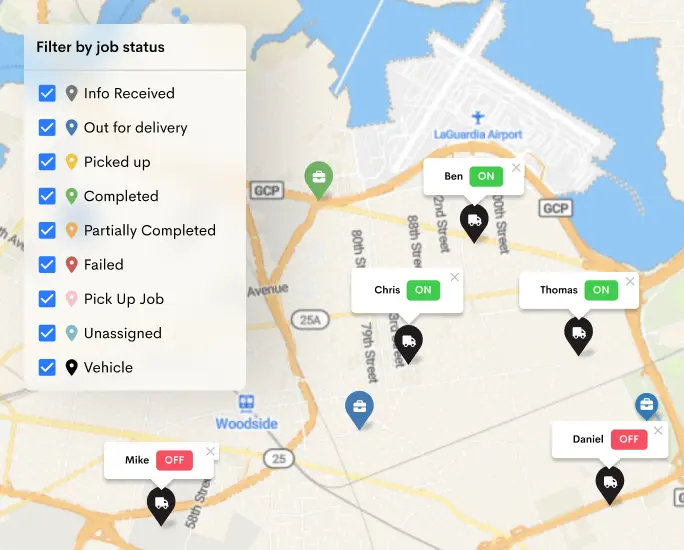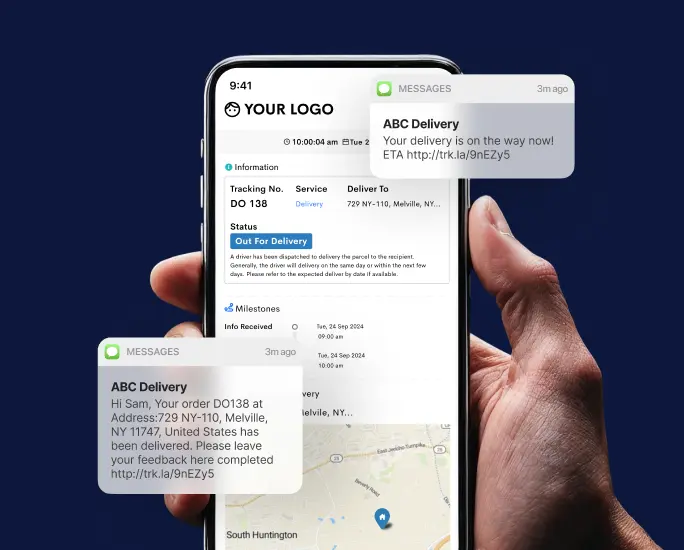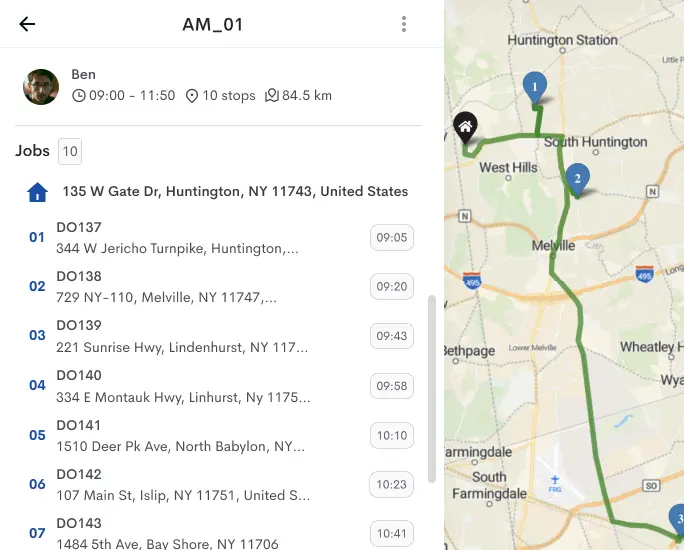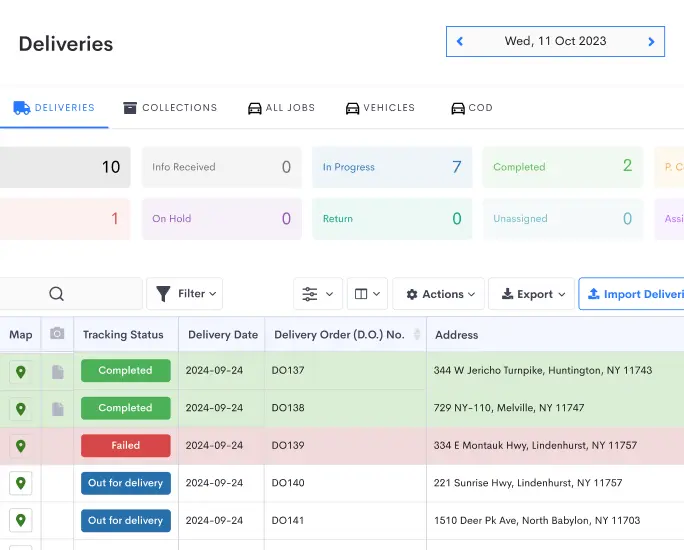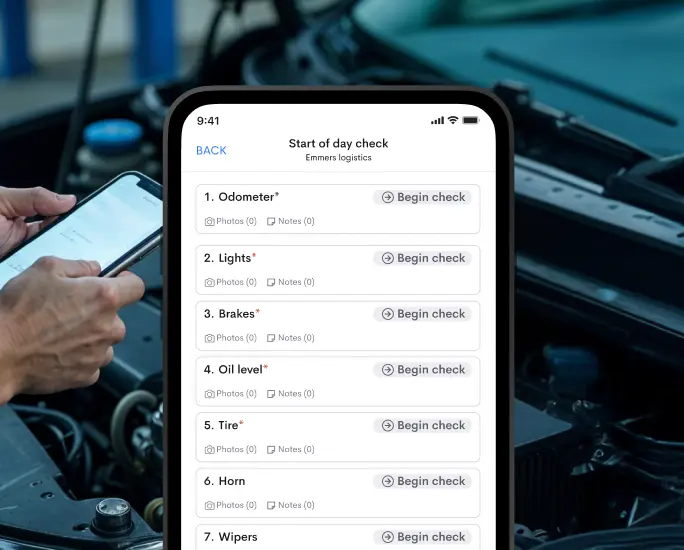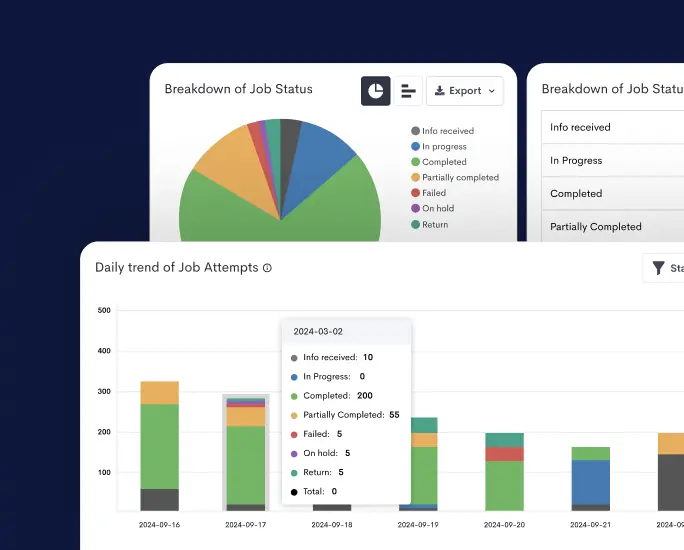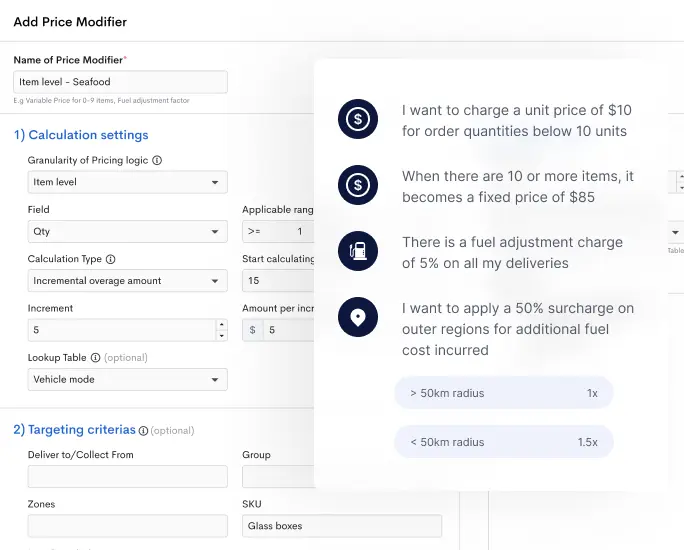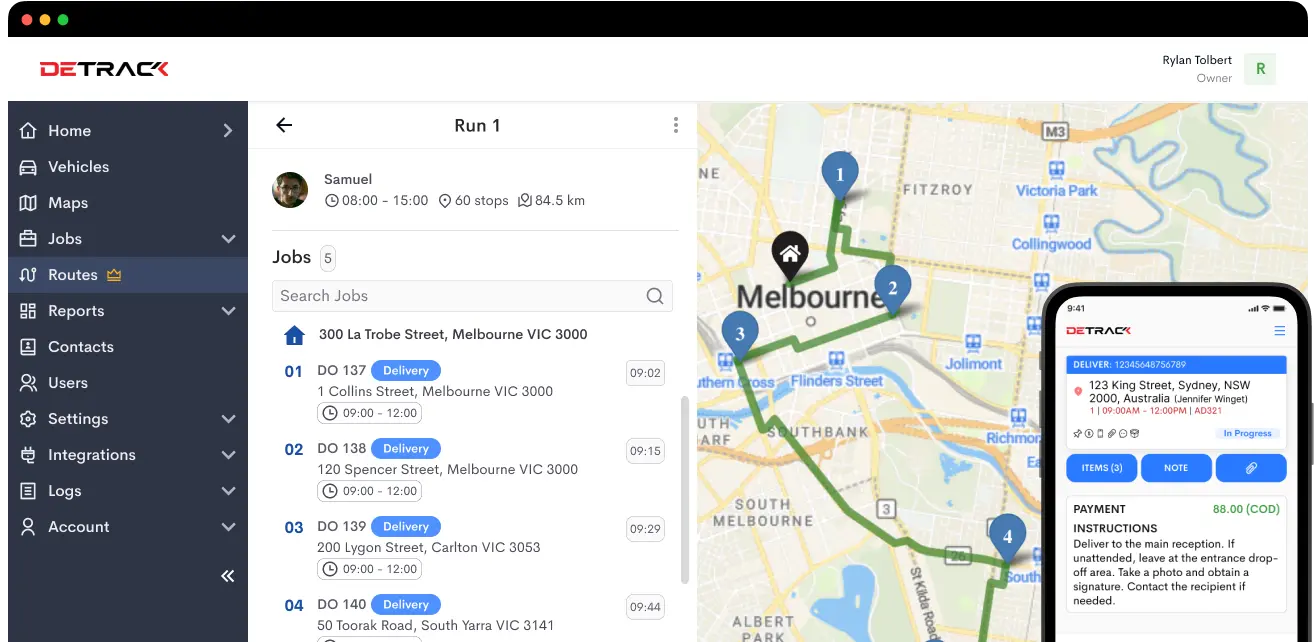Delivery logistics can be the difference between success and failure for any business—that’s why a powerful, efficient dispatch system is instrumental in ensuring packages are delivered quickly, safely, and cost-effectively.
Whether you’re an ecommerce company needing to efficiently deliver orders to customers or a business that needs invoices and payments distributed daily, mastering your delivery processes is essential if you want to stay competitive.
That’s why this article will provide key insights into the fundamentals of effective dispatch management so you can optimize device tracking and scheduling for maximum efficiency. Learn how to streamline your dispatch operations with these tips today!
What is Dispatch Management?
Dispatch management is a system used to ensure that goods and services are delivered in the most efficient way possible. This involves planning, tracking, and managing vehicle routes with the aim of optimizing delivery times and minimizing costs.
Dispatch systems often use software tools to help automate route creation and optimize routes for cost efficiency. The main goal of this system is to ensure that goods reach their destination as quickly and cost-effectively as possible.
Dispatch management systems can help optimize operations by reducing the number of vehicles required for delivery, scheduling deliveries more efficiently, improving customer service levels, and ensuring compliance with safety regulations.
These systems can also provide real-time tracking and visibility into delivery locations, allowing companies to better manage their operations and make informed decisions.
By effectively managing the dispatch of goods and services, companies can improve their profitability and customer satisfaction levels.
Understanding The Dispatch Process
The dispatch process is important to ensure the efficient and effective delivery of goods and services. The following steps are involved in the dispatch process:
- Order Taking: This is the process of collecting customer orders and recording them in a database. It is important to ensure accuracy when taking customer orders, as any mistakes could lead to delays or even cancellations.
- Pre-Dispatch Checks: Once an order has been taken, it will be checked by a dispatcher to ensure that all information is correct and up-to-date. This includes verifying customer details, shipping addresses, payment methods, and product availability.
- Packing: The dispatcher will then pack the order for shipment, taking into account any special instructions provided by the customer. All items must be securely packaged to prevent damage during transit.
- Shipping: The order is then sent to the destination via a carrier such as FedEx, UPS or postal service. The dispatcher will provide tracking information so that customers can follow their orders and see when they are expected to arrive.
- Delivery Confirmation: Once the shipment has arrived at its destination, it must be confirmed by the dispatcher. This ensures that all items have been delivered safely and in a timely manner.
These steps are essential to ensure the efficient and effective centralized dispatching process and help to maintain customer satisfaction. By following these steps, companies can maximize their delivery efficiency and minimize customer complaints.
Best Practices For An Efficient Dispatch Process
Here are some of the best practices for an efficient and effective dispatch process:
Define your business processes
The first step to streamlining your dispatch process is to clearly define your business processes. What are the steps that need to be taken in order for a job to be completed?
What information do you need from your customers? By mapping out your process, you will be able to identify any areas that may be inefficient or could be improved.
Use technology to your advantage
There are a number of software programs that can help you to streamline your dispatch process.
Dispatch software can automate many of the tasks associated with dispatching, such as scheduling, routing, and invoicing. By using dispatch software, you can free up time for your staff so that they can focus on other tasks.
Train your staff
It is important that all of your staff members are properly trained on the dispatch process. They should know how to use the dispatch software, as well as any other tools that they will need to complete their tasks.
Additionally, they should be familiar with your company’s policies and procedures so that they can effectively communicate with your customers.
Communicate with your customers
Clear communication is essential for an efficient dispatch process.
Your customers should know what to expect from your company, and they should be kept up-to-date on the status of their job. By keeping your customers informed, you can avoid misunderstandings and potential delays.
Review and improve regularly
The dispatch process is always evolving, and it is important that you regularly review and update your procedures.
As new technology becomes available, or as your business grows and changes, you may find that certain aspects of your process need to be tweaked in order to remain efficient. By regularly reviewing your process, you can ensure that it is always running smoothly
The Importance Of Dispatch Management In Delivery Operations
Dispatch management is critical to the success of any delivery operation. It allows businesses to identify, plan and execute efficient delivery routes, prioritize orders based on customer needs, and ensure that customers receive their products in a timely manner.
Dispatch management also helps businesses maintain cost-efficiency by optimizing delivery resources such as personnel and vehicles.
Through proper dispatch management, delivery operations can maximize the efficiency of their resources, which leads to improved customer experience and increased revenue.
By utilizing the right dispatch systems and technology, delivery companies can better manage their fleet of drivers, optimize routing decisions, reduce wait times for customers, and increase visibility into their delivery operations.
In addition to helping businesses save money by reducing costs associated with delivery operations, dispatch management also helps ensure that customers receive their orders on time.
By tracking the progress of each driver and order, businesses can better anticipate customer needs and adjust deliveries accordingly. This increases customer satisfaction, as customers are provided with timely updates regarding their orders throughout the entire delivery process.
What Exactly Is A Dispatch Management System?
A Dispatch Management System (DMS) is a software solution designed to help fleet managers and dispatchers better organize and manage the delivery of goods or services.
DMS is used to plan, optimize, and track deliveries in order to maximize efficiency, reduce costs, improve customer service, and increase safety.
The system allows dispatchers to allocate resources, prioritize orders, and track the status of vehicles or personnel. It also features automated routing capabilities to give drivers the most efficient routes for their deliveries.
Additionally, DMS can be integrated with existing back-end systems so that fleets have a unified view across multiple touch points in the supply chain. All of this helps ensure on-time delivery, cost savings, and improved customer satisfaction.
With a DMS in place, fleet managers can better optimize their operations and ensure that every delivery runs as smoothly and efficiently as possible.
How To Choose The Right Dispatch Management Service For Your Business
When it comes time to choose a dispatch management service for your business, there are a few key factors you should take into consideration.
Consider the Size of Your Business
First and foremost, consider the size of your business and the number of shipments that need to be managed. A smaller company may not need as many features or functions from their software as a large logistics company might require.
Additionally, you should think about the types of shipments you typically handle and make sure that the software can accommodate those needs.
Look for a Feature-Rich Platform
Second, look for a feature-rich dispatch software. You want to be sure that the software offers all of the features and functions you need to effectively manage your business.
This could include things such as automated route optimization, real-time tracking, and driver management. Look for software that allows you to customize the features of your service so that it best meets your needs.
Consider the Cost
Third, consider the cost of the dispatch management service compared to other services available on the market. This can help you determine which one is the best fit for your business.
You may also want to compare the support offered by each company as well. Make sure that you have access to a knowledgeable and friendly customer service team if ever you need assistance with your software.
Ease of Use
Finally, consider the ease of use when selecting a dispatch management service for your business. Look for one that offers intuitive features and is easy to use.
This will make your life much easier and ensure that you can get up and running quickly.
Streamline Your Process With Detrack
A delivery process that is streamlined and efficient can be the difference between a company that succeeds and one that doesn’t.
By taking the time to understand your dispatch management options and choose the right solution for your business, you can ensure that your deliveries are made on time and without incident.
Looking to streamline your delivery process and make it more efficient? Give Detrack a try. With its comprehensive features, you’ll be able to easily manage your fleet and optimize your routes for faster, smoother deliveries.
Try Detrack today and see how dispatch management can help improve your business operations!



